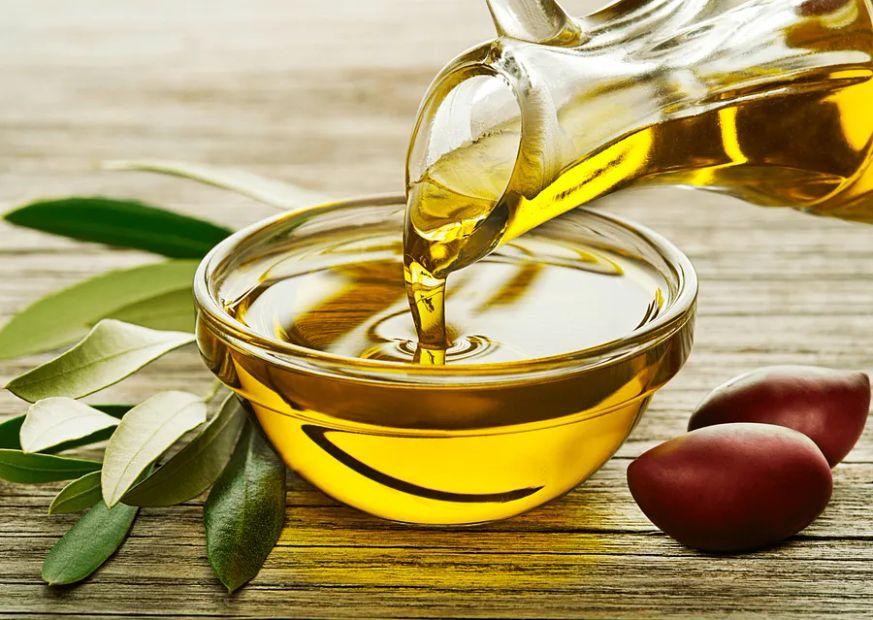What Is High-Polyphenol Olive Oil?

High-quality olive oil has a distinctive peppery kick and a subtle bitter finish that can elevate a simple salad, especially when paired with balsamic vinegar. This unique flavor comes from polyphenols, the powerful compounds found in the oil.
What Are Polyphenols?
Polyphenols are natural compounds found in many plant-based foods, including olive oil, tea, cocoa, fruits, and vegetables. These compounds act as antioxidants, helping to neutralize harmful free radicals in the body that can lead to diseases like heart disease, cancer, and cognitive decline.
Polyphenols are a key reason why a plant-based diet is essential for your health. Research suggests that they help reduce inflammation and lower the risk of several diseases, including heart disease, certain cancers, and neurodegenerative disorders such as Alzheimer's.
What is High-Polyphenol Olive Oil?
Olive oil is rich in over 30 phenolic compounds, including oleacein, tyrosol, and hydroxytyrosol. High-polyphenol olive oil contains at least 250 mg of polyphenols per kilogram. Not all olive oils meet this standard — the polyphenol content depends on how the oil is processed and stored.
In the European Union (EU), bottles of high-polyphenol olive oil can display the health claim that "olive oil polyphenols contribute to the protection of blood lipids from oxidative stress," as long as they contain at least 5 mg of hydroxytyrosol and its derivatives per 20 g of oil. There is no similar claim in the US or Canada, but the health benefits remain the same.
Health Benefits of High-Polyphenol Olive Oil
Olive oil is famous for its high content of monounsaturated fat, which is linked to a reduced risk of heart disease and stroke. While olive oil is mostly fat, the remaining two percent contains polyphenols and other beneficial compounds that contribute to its health benefits.
Numerous studies have explored the health benefits of high-quality, high-polyphenol olive oil as part of the Mediterranean diet. This diet emphasizes abundant vegetables and fruits, limits meat and sweets, and uses olive oil as the primary source of fat. Research shows that regularly incorporating extra virgin olive oil into the Mediterranean diet is linked to a reduced risk of several diseases, including heart disease, type 2 diabetes, and certain cancers.
Heart Health
Clinical studies have demonstrated that the Mediterranean diet, along with high-polyphenol olive oil, helps protect heart health by lowering blood pressure, blood sugar, and cholesterol levels. These benefits are attributed to both the polyphenols and the monounsaturated fats found in the diet. The European Union recommends consuming 20 g (about 4 teaspoons) of high-polyphenol olive oil daily to promote heart health.
Cognitive Decline and Alzheimer's Disease

How Can You Identify High-Polyphenol Olive Oil?
A recent review of 26 studies comparing the effects of low vs. high-polyphenol olive oil found that high-polyphenol oil was more effective in protecting heart health, reducing blood pressure, and combating inflammation. However, not all olive oils are high in polyphenols. While some bottles may be labeled with their phenolic content, this is rare outside the EU or specialty stores. If you find one with a label, look for a phenolic content of at least 250 mg/kg.
How to Choose High-Polyphenol Olive Oil
If you can't find olive oil labeled with its phenolic content, here are some tips for finding high-polyphenol olive oil from trusted suppliers:
- Buy extra virgin olive oil, rather than light, pomace, or refined olive oil. Virgin oils are richer in polyphenols than refined olive oils, but virgin alone isn't a guarantee of high levels of polyphenols.
- Look for oils that are cold pressed since heat destroys polyphenols.
- Check which type of olives were used to make the oil. Many producers list olive varietals on the bottle, the same way wine bottles tell you which grapes were used. Olives with the most polyphenols include Coratina, Conicabra, Koroneiki, Moraiolo and Picual.
- Search for the olive oil company's certification of phenolic content. The brand Agourolado, for example, clearly states its phenolic content and will send a full lab report upon request.
- Check for an expiration date to ensure the olive oil is fresh. There are more polyphenols in fresher oils. In general, olive oil is freshest in the first 9 months after pressing, but it does last up to 18 months in cool conditions. If the bottle does not have a pressing date or an expiry date, skip it.
- Choose olive oil stored in a dark-colored container rather than a transparent bottle. Dark glass protects the polyphenols against damage from light and oxygen.
How to Store High-Polyphenol Olive Oil
Once you bring olive oil home, store the bottle away from heat and light. Keep it in a cool, dark place, ideally away from the stove. Yes, you can store olive oil in the fridge. After opening the bottle, it's best to consume it within a few months.
Can You Cook with High-Polyphenol Olive Oil?
Yes, you can safely cook with olive oil at medium heat without losing its polyphenol content.
Our collection of recipes featuring olive oil offers plenty of inventive ways to incorporate high-polyphenol olive oil into your meals. You can also explore our top-rated Mediterranean diet recipes for a variety of healthy, olive oil-rich dishes.
Evaluation :
5/5



